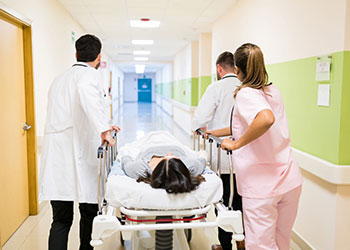
Emergency Medical Problems
These are unexpected medical situations that deteriorate quickly and require urgent care in a hospital or emergency setting. Conditions like heart attacks, strokes, severe allergic reactions, breathing difficulties, trauma, poisoning, and seizures fall under emergency care.
Whether it’s an adult suffering a cardiac arrest or a child with high fever and convulsions, every second counts in managing emergencies.
Common Symptoms:
Emergency conditions often present with sudden, alarming signs such as:
Causes of Emergency Situations:
Medical emergencies can arise from a wide range of causes, including:
Treatment & Emergency Response:
Dr. Varun Deodhar and his emergency care team follow global best practices and protocols to deliver fast, accurate, and effective treatment:
Prevention & Early Action:
While not all emergencies can be avoided, many can be prevented or minimized with the right lifestyle, awareness, and preparedness:
